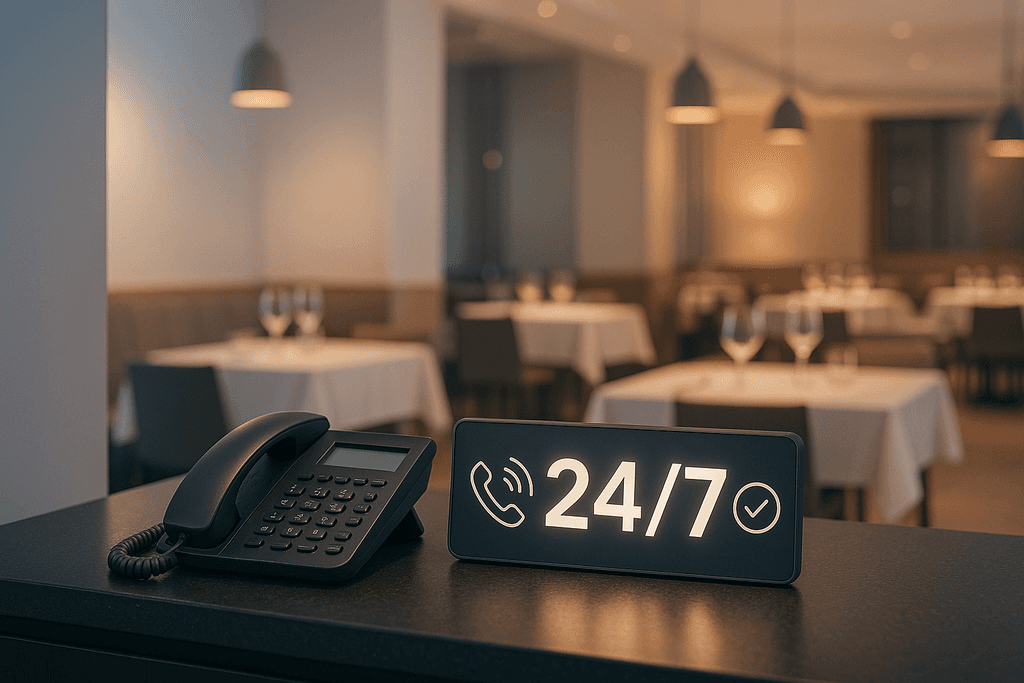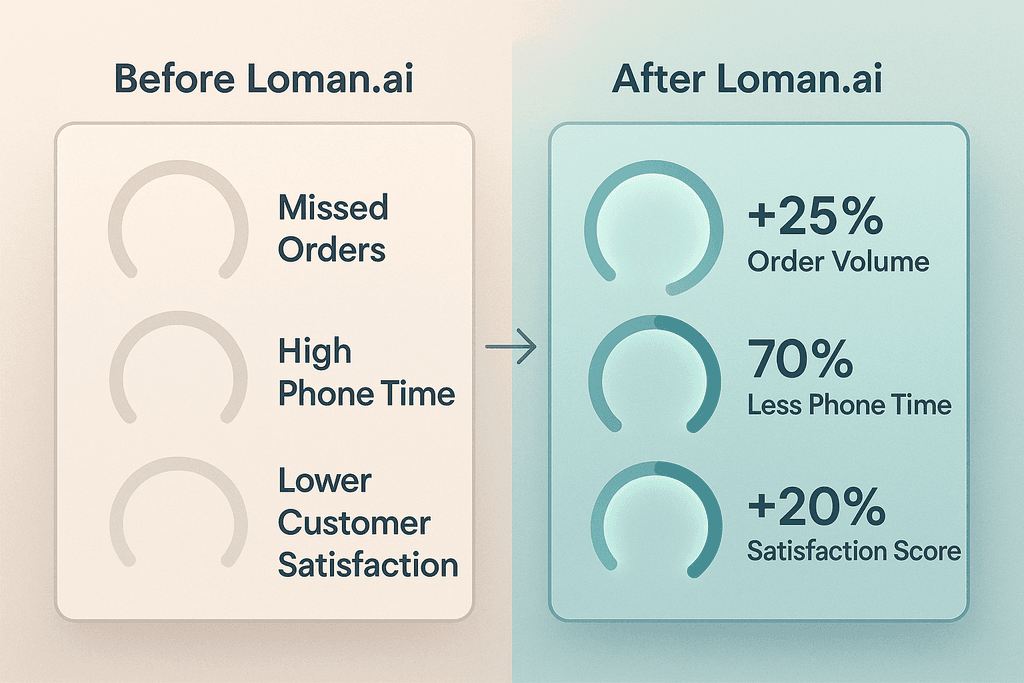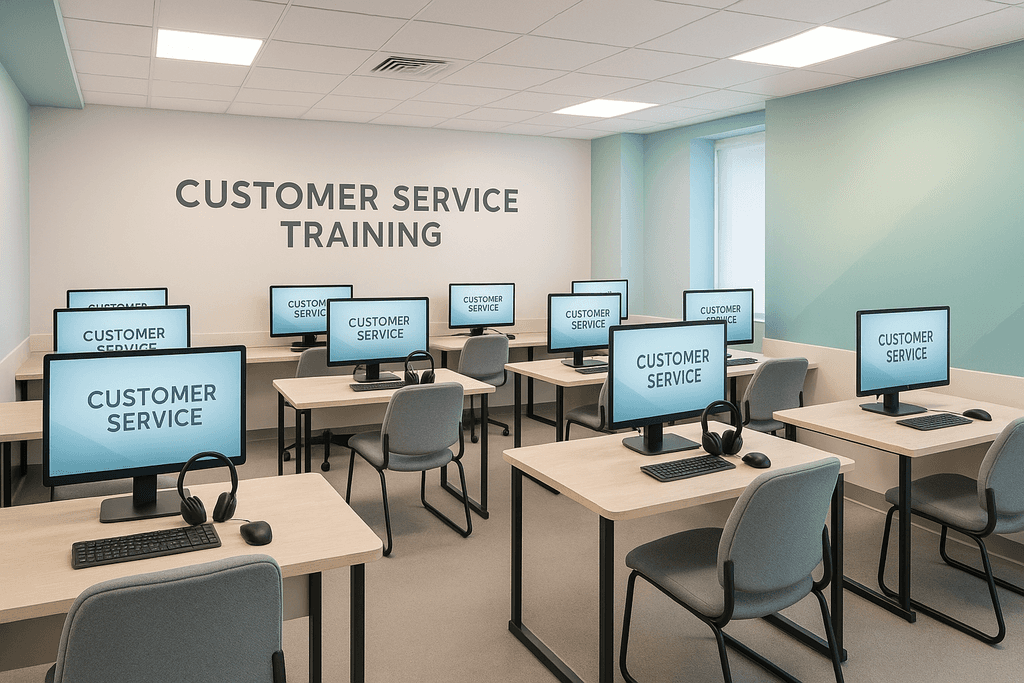August 30, 2025

Imagine losing $100 every time your restaurant's phone rings unanswered. During peak hours, a staggering 25% of calls to restaurants go unanswered, potentially costing each business thousands in lost revenue. This silent drain on profits isn't just about missed orders—it's creating frustrated customers and damaging reputations in an industry where every interaction counts.
Restaurants have long grappled with the challenge of managing phone calls. In the past, a busy night meant constant ringing, frustrated customers, and missed orders. A single staff member often juggled multiple roles - taking orders, answering questions, and managing reservations.
This juggling act led to some eye-opening statistics:
As technology advanced, online ordering platforms emerged as a partial solution. They reduced some phone traffic, but many customers still preferred calling directly. This preference highlighted a crucial gap in restaurant communication.
The rise of AI-powered call handling marks the next step in this evolution. These systems can:
Early adopters of AI call handling have seen promising results. One study found that restaurants using AI phone systems saved an average of $47,000 annually in labor costs.
As the restaurant industry continues to evolve, the way businesses handle calls is changing too. AI solutions like Loman.ai are stepping in to address long-standing communication challenges, promising a new era of efficiency for both staff and customers.
Missed calls mean missed opportunities. When phones go unanswered during busy times or after hours, restaurants lose out on potential orders and reservations. But with 24/7 call handling, every ring gets a response.
Here's how always-on phone support changes the game:
Consistency is key when it comes to customer service. Automated systems provide the same friendly, accurate info every time - no more confusing answers from rushed servers. And when the phone lines light up during the lunch rush? No problem. AI can handle multiple calls at once without breaking a sweat.
Modern AI phone systems do way more than just answer calls. They're like having a tireless, ultra-efficient receptionist working around the clock. Check out these game-changing capabilities:
The best part? These systems adapt to fit your restaurant's unique needs. Whether you're a cozy cafe or a bustling chain, the AI learns to speak your language.

Numbers don't lie, and the results restaurants see after implementing 24/7 call handling are pretty impressive. Let's break it down:
The return on investment is clear - most restaurants find these systems pay for themselves in just 3-6 months. That's a lot of extra dough (pun intended) back in your pocket.
Don't just take our word for it. Here's what real restaurant owners are saying:
"We're making more money from orders we previously missed, and my staff is more efficient. They would never let me get rid of Loman." - Nick, Restaurant Owner
Loman.ai, our AI phone assistant, tackles these challenges head-on. It's designed to handle the unique demands of restaurant communication, from complex orders to last-minute reservation changes.
Curious to see how it works? You can try Loman.ai for yourself and experience the difference 24/7 call handling can make for your restaurant.
Remember, in the restaurant biz, every call counts. Make sure you've got a system that never sleeps, so you never miss an opportunity to serve up something delicious.

AI phone agents like Loman.ai are changing how restaurants handle calls. But what's next? Let's look at where this tech is headed and what it means for restaurants.
As AI gets smarter, we'll likely see it team up with other restaurant tech. Imagine a system that not only takes orders but also:
One exciting possibility is AI that remembers customers and personalizes their experience. This could lead to:
But it's not all smooth sailing. Restaurants face some hurdles in adopting this tech:
Despite these challenges, the benefits are hard to ignore. A recent study found that AI hosts can cut missed dinner-rush calls by 87%. That's a huge boost for busy restaurants.
As more restaurants try out AI phone systems, we'll likely see improvements in:
The key for restaurants will be finding the right balance. AI can handle routine tasks, freeing up staff to focus on creating great in-person experiences. It's not about replacing humans, but enhancing what they can do.
As this tech evolves, it's worth keeping an eye on. Tools like Loman.ai are just the beginning. The restaurants that adapt early might find themselves with a real edge in customer service and efficiency.
Let's face it - missed calls mean missed opportunities. For busy restaurants, every unanswered phone could be a lost order or reservation. That's where 24/7 call handling comes in clutch.
AI phone agents like Loman.ai are changing the game for restaurants. They take orders, book tables, and answer questions around the clock. No more phone tag or voicemail purgatory for customers.
The benefits are clear:
Early adopters are already seeing results. As one restaurant owner put it, "Sales are up almost 25% since we started using Loman." That's the kind of boost that can make or break a business.
Of course, change can be scary. You might wonder how AI fits into your restaurant's workflow or if it can really handle complex orders. Those are great questions to explore as you consider upgrading your phone system.
Curious to learn more? Check out our blog post on why restaurants are adopting AI phone agents. Or see how it works with a personalized demo.
The restaurant industry is always evolving. Staying ahead means embracing tools that boost efficiency and sales. For many, 24/7 call handling is becoming as essential as a good chef's knife.
Setting up AI call handling is surprisingly simple. Most systems integrate with your existing phone lines and POS software. The process usually takes a few hours and doesn't require any special tech skills. Loman.ai, for example, can often be up and running in less than a day.
Yes, modern AI call systems are quite sophisticated. They're trained on your specific menu and can handle intricate orders and customizations. The AI learns over time, getting better at understanding unique requests. If a request is too complex, the system can smoothly transfer the call to a human staff member.
AI systems are designed to recognize when they can't fully assist a caller. In these cases, they seamlessly transfer the call to available staff. This ensures customers always get the help they need, while still handling most routine calls automatically.
Pricing models vary, but most operate on a monthly subscription basis. Costs often depend on call volume or features used. Many restaurants find the systems pay for themselves quickly through increased order accuracy and fewer missed calls. It's best to get a custom quote based on your specific needs.
Modern AI voices sound incredibly natural. While some systems disclose they're AI upfront, others are nearly indistinguishable from humans. The key is that customers get fast, accurate service. Most people care more about getting their needs met quickly than whether it's an AI or human helping them.
AI call handling typically reduces staff workload significantly. It handles routine calls, freeing up employees to focus on in-person customers and more complex tasks. This often leads to better customer service overall and less stress for staff during busy periods.

Enter your information in the form to receive a call from Loman and place an order like a customer would!